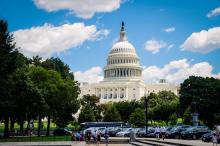The USF Survives Supreme Court, But Massive Challenges Remain
The FCC’s Universal Service Fund (USF) has survived a Supreme Court challenge by a right wing activist nonprofit, but the program – which for decades has helped extend broadband to underserved rural homes and schools – still faces a precarious immediate future.
It is a peculiar political story, given that the rural regions that overwhelmingly vote for Republicans are now seeing Republicans try to dismantle a program that has been crucial for rural investment and development.
The FCC established the fund in 1997 in compliance with the Telecommunications Act of 1996. Historically a program with broad, bipartisan support, the USF leverages around $8 billion annually to expand broadband access to rural communities, libraries, and schools. The program is primarily paid for by consumers via a small levy on traditional phone lines.
In 2023, a right wing activist nonprofit named “Consumer’s Research” sued the government over the USF, claiming that the FCC lacked the constitutional authority to levy a fee on consumers’ bills. The lawsuit claimed that the USF depended on what amounted to an “unconstitutional tax” on consumers to fund operations.



